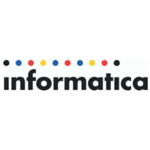 Bron: Informatica
Bron: Informatica
Auteur: Andrew Joss
With so many different Regulatory Compliance requirements scattered across the Financial Services industry, for many they are seen as a necessary but unwanted burden. The need to have great data to achieve compliance provides a platform to support the opportunity of a growth agenda.
One of the common factors to most regulatory requirements is the ability to report high quality information on both a periodical and demand basis. The quality of reporting the correct information is important in that getting it wrong is expensive (time, cost and reputation), meaning it’s now a Board level conversation. This Executive level awareness about data and information provides an opportunity to have a dialogue about how the application of the same underlying principles and approaches to regulatory reporting can drive business benefits in other areas.
As an example, we will use the Basel Committee on Banking Supervision ‘Principles for effective risk data aggregation and risk reporting’ requirement (BCBS239). This was driven from awareness that some banks struggle to aggregate risk exposures and identify concentrations both accurately and rapidly. This applies at all levels across Banks as well as the legal entities they transact with. As a data centric requirement, there is now Executive level visibility on the quality of data across the business as well as other capabilities such as data aggregation (combining and summarising data sets).
Key Capabilities
Our experience in this space is that to support achieving BCBS239 compliance requires a set of capabilities to find and quality check data, aggregate data together then report on it. Areas of capability required include:
- The ability to integrate data from any system and in any format
- The ability to quality assess data and fix errors if required
- The ability to have a single, trusted view of key data elements such as client, counterparty
- The ability to understand and track data from its source to its destination
- The ability to have a trusted set of business and technical definitions of key data elements
These are the same 5 sets of capabilities used across most data-oriented regulatory compliance solutions, so having the capabilities to make a requirement work for one regulation means an organisation has them for others. This is easiest to achieve when an organisation has a single technology stack that provides all of these capabilities so they can be used for other requirements.
Building a set of compliance capabilities usually requires data to come from across the lines of business. It’s this approach of having great data from across the business that serves another purpose.
This great data becomes even more beneficial in that the same capabilities, and often the same datasets, can be used on more Customer Centric or transformational programmes that drive the growth agenda. Having great data about clients, securities, pricing, counterparties etc. is invaluable as it directly supports:
- Development of new products
- Improved customer and market segmentation
- Creating and developing better marketing campaigns
- Better customer service
- Enhanced customer engagement projects and programmes
Driving Business Value
As an example, many regulatory compliance directives require organisations to understand who their customers are along with what products and services they’ve bought. Generating this information for compliance reasons tells an organisation what customers have bought but also tells them what customers HAVEN’T bought. This gap analysis quickly forms part of customer insight engagement to work out why customers bought specific products and then how to use this information to target other similar customers with these same products. Here we’ve used a regulatory requirement to generate insights into a Next Best Action/Next Best Offer/Cross Sell/Up Sell campaign.
Having a standardised set of capabilities to provide great data for compliance reasons means Financial Services organisations already have the capabilities to rapidly support major growth agenda programmes.
Meer informatie
Andrew Joss, Financial Services Industry Consultant EMEA-region Informatica, is o.a. sprekers tijdens het congres Big Data in de financiële sector op 4 februari 2016. Daar gaat hij o.a. in op Data Governance in Financial Services: de balans tussen Customer-Centricity en Compliancy.
 Euroforum Blog Het kennis blog van Euroforum
Euroforum Blog Het kennis blog van Euroforum




